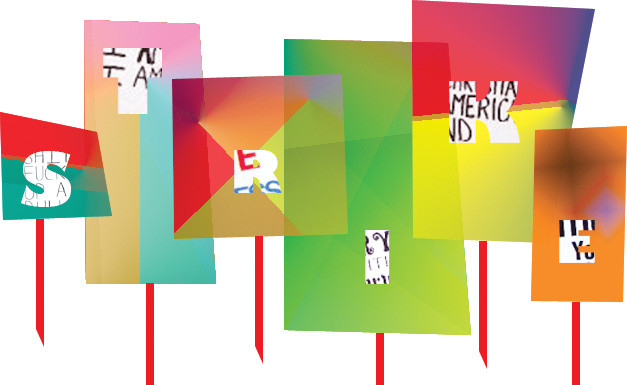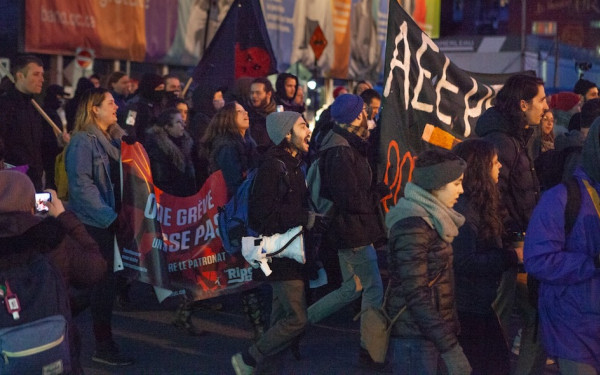Editorial: Embracing the Human Side of the Anti-Austerity Movement
From 2012 on, it feels as though a year hasn’t passed in Montreal without one student body or another proposing walking out of their classes to try and get their point across.
This year, the strikes began in spring 2015, as students across the city mobilized to protest the government’s fresh austerity measures. If you were in the city in April, you were probably aware of the anti-austerity movement, which saw thousands marching through downtown in a student-led demonstration on April 2.
Although strikes were postponed for the summer, the beginning of classes in September also brought demands of protest—various departments at Concordia have already voted to return to striking against austerity, including the Liberal Arts College and the School of Community and Public Affairs student associations.
Conversely, some faculties, such as philosophy, have voted on the issue of striking against austerity, only to find support lacking. Philosophy undergraduates voted by secret ballot and lost the motion to strike by a single vote. Meanwhile, philosophy graduates voted to strike on Nov. 5, demonstrating polarity embodied in a single faculty.
Even if the philosophy undergrads passed a strike motion, they only would’ve won by one vote. Which is the basis of this problem: mobilization and dialogue.
Surveying the social-political landscape of Concordia, it’s not straightforward. Students aren’t the only ones who are in the midst of what could become a prolonged strike; Montreal police have been protesting cuts to their pension plans for over a year. Those camouflage pants and army boots they’ve been donning aren’t for a change of uniform—it’s their way of voicing their disapproval of a bill, which was already passed.
Just as austerity measures have already been implemented. This movement is different from the one in 2012; the battle is pushing for reversal, not prevention.
When you see police officers walking down de Maisonneuve Blvd., do you think of the fact that they’re on strike? While it’s a generalization, we have detached any human face, any human person from the issue of austerity.
We all remember Gabriel Nadeau-Dubois, who was one of the leaders of the 2012 Maple Spring. Printemps 2015 lacked a clear point of reference that Nadeau-Dubois embodied.
It also feels more like the strike has become less of a movement and more of a culture at Concordia. When you see anti-austerity banners in the Hall building, do you think of the many public sectors suffering from extreme budget cuts? Do you think of what austerity has done to doctors and subsequently, their patients, who cannot receive the same level of treatment as before?
We don’t have a united front, and we’ve lost touch with the core of the movement—the people who are suffering from the cuts to public funding. Budget cuts certainly aren’t helping anyone, except maybe the government and corporations. How are we going about making a case for ourselves in a way that sends a sincere message? We know that the administration hears us, but we’re lacking clear lines of communication with the provincial government.
If we’re going to continue the protest against austerity, let’s not remain static. Let’s not become what camouflage pants have become to the cops: a fixed facet of society, detached from the realities that sparked an action in the first place.




_600_375_90_s_c1.JPG)
_600_375_90_s_c1.jpg)

